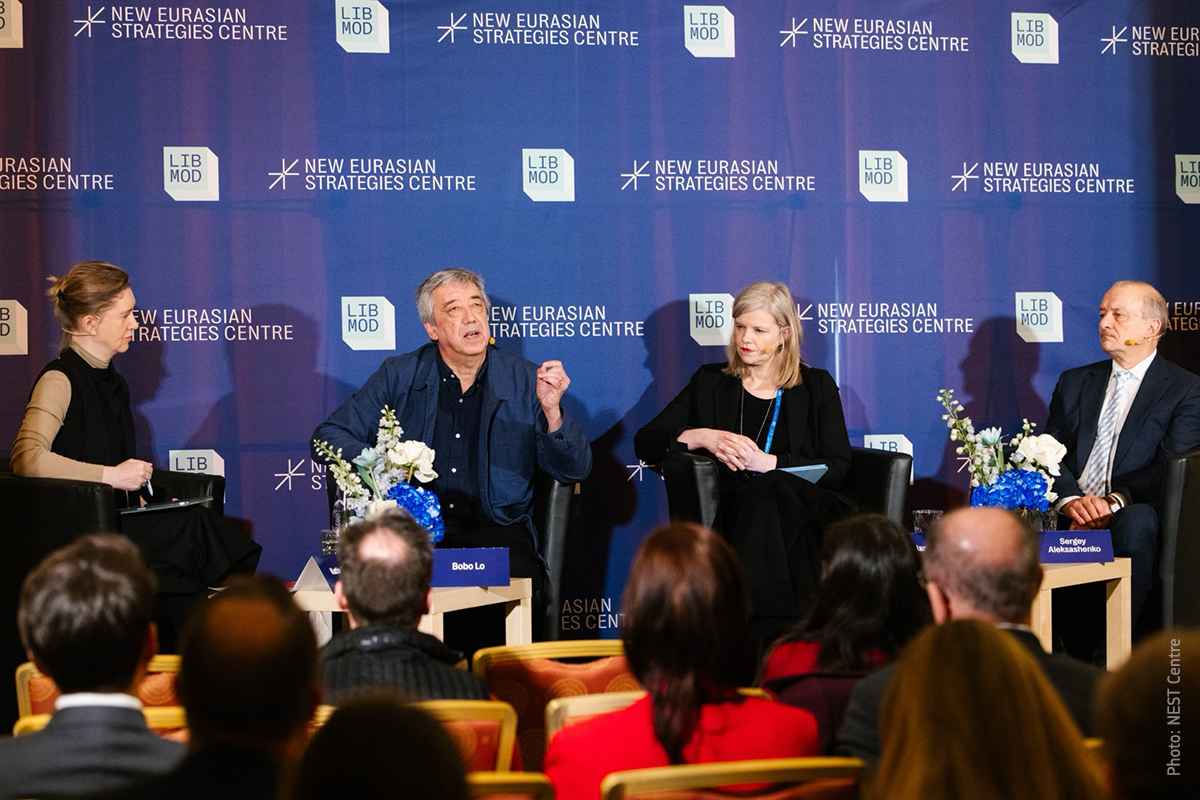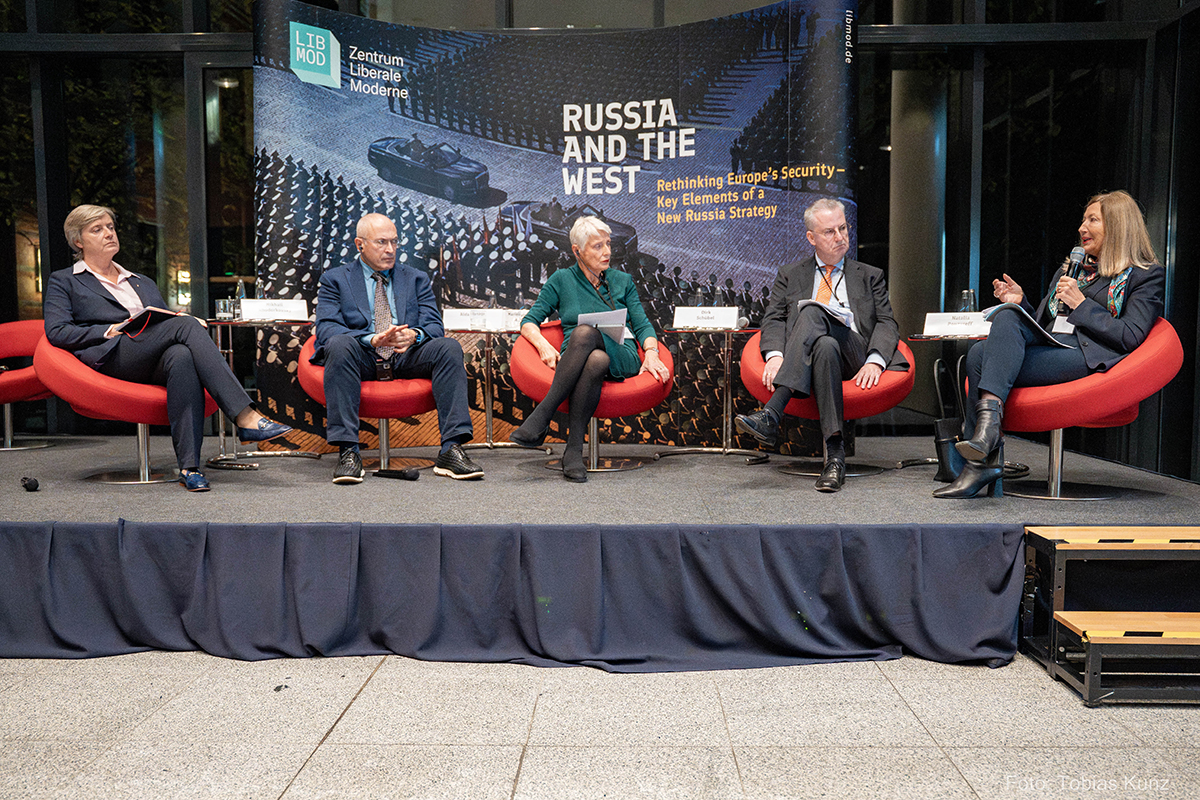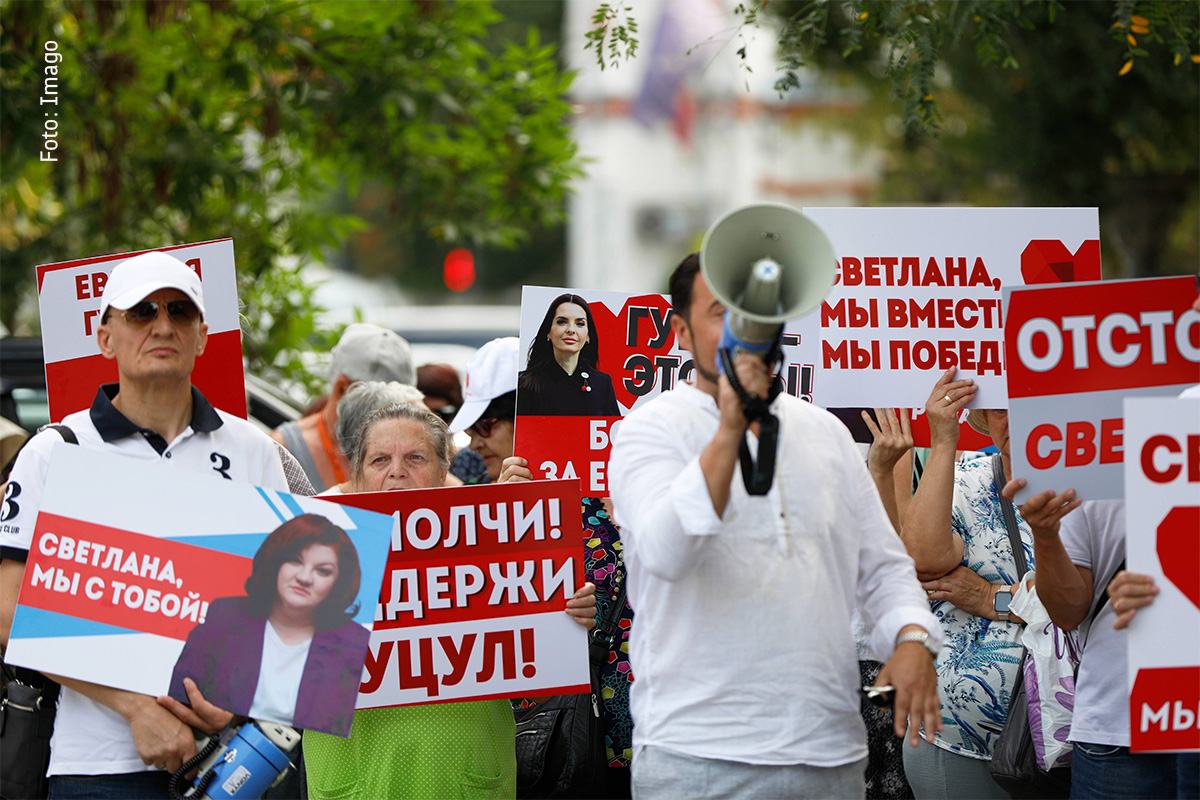Irritations about Germany

Chancellor Scholz supports Ukraine only so much that it can defend itself with difficulty, but cannot launch a counterattack. But if Putin is not defeated in Ukraine, there will be no peace in Europe.
Russia’s war against Ukraine is entering its 21st week. What was horrifying at the beginning is beginning to become habitual: the bombing of residential neighbourhoods and the attacks against hospitals, the targeted destruction of vital infrastructure, the blockade of Ukraine’s Black Sea ports, the mass executions and rapes in the territories conquered by Russia, the deportation of more than one million Ukrainians to Russia, a refugee population in the tens of millions, the growing losses of the Ukrainian army under a hail of fire from Russian artillery, missiles and tanks.
Other, domestic worries are superimposed on the horror news from Ukraine — inflation, skyrocketing energy prices and the threat of recession. The prospect of the Kremlin cutting its gas supplies to zero is prompting the federal government to ask Canada to suspend export sanctions against Russia and release the delivery of a turbine for the Nord Stream 1 gas pipeline. In principle, we are in favour of sanctions against Russia’s war economy, but unfortunately we have willingly become dependent on Russian fossil fuels. Since the beginning of the war, the EU has imported nearly a hundred billion euros worth of Russian oil and gas; the shirt is closer than the skirt.
In the Foreign Affairs Committee, Chancellor Scholz rejects the demand for the delivery of Marder infantry fighting vehicles for Ukraine with the remark “That would be a terrible escalation.” Defence Minister Lambrecht responds to the Union’s request to give 200 of 825 armoured Fuchs transports to Ukraine with a categorical “We will not let the Bundeswehr be plundered.” More coldness and distance towards Ukraine is hardly possible. One would like to know what acute threat scenario the minister is assuming that does not allow Ukraine to be supported from the Bundeswehr’s stocks? Is an attack on the Baltic States or Poland imminent — or is it not rather the case that every tank shot down, every missile launcher destroyed, every company of the Russian army routed increases our security? If we want to keep Russia out of NATO, we must do everything we can to make Putin fail in Ukraine.
Russia’s strategists of confrontation are counting on the West’s conflict aversion, short-sightedness and indifference. They are convinced that they are in the driver’s seat, even though Europe and the USA are vastly superior economically and also have the greater military potential. Putin considers Europe — Germany first of all — to be fearful and spoiled by prosperity. Why make sacrifices for Ukraine or even risk a war with Russia? He may be right.
Appeasement will not stop Putin
The call for Ukraine to stop standing in the way of an end to the war and give Putin what he wants is gaining ground. Clausewitz put this inversion of perpetrator and victim in the ironic formulation that ultimately the defender is to blame for the war because he stands in the way of the aggressor: the aggressor would like to invade quite peacefully. Our subjugation pacifists are fully serious. They agree with Lavrov that the West is unnecessarily prolonging the war with its arms deliveries. In their view, the Ukraine has no chance of stopping the Russian advance anyway. This not only makes a mockery of the determination of Ukrainians — men and women alike — to fight for their independence and freedom. The call for a compromise with Putin also fails to recognise the nature of the Russian campaign.
Russia is waging a war of extermination against Ukraine as a nation. Anyone who does not joyfully welcome the Russian “liberators” is a “fascist” and at the mercy of the conqueror’s violence. The cession of southern and eastern Ukraine to Russia would not bring peace, but a wave of liquidations, arrests and deportations. Butcha and Mariupol have taught Ukrainians that there can be no arrangement with Russia. And why should Putin be satisfied with another big bite out of Ukraine’s territory? The annexation of Crimea and the de facto annexation of the puppet republics in the Donbas have only increased his appetite. We should finally take note that he is concerned about the whole of Ukraine — and not just Ukraine.
Putin is on a revanchist trip. He wants to collect the lost provinces of the Russian Empire, regain dominance over Central-Eastern Europe and control the Black Sea. If the West does not have the strength to stop him in Ukraine, the next advance is only a matter of time. The Kremlin has made it sufficiently clear that for it an end to the war is only an option if Ukraine accepts Russian demands. Such a “negotiated peace” would not only be a third-class funeral for any value-based European order. Appeasement towards an aggressor does not create sustainable peace. If Putin walks off the battlefield with even a partial victory, we will see a long period of war risk and instability on Europe’s eastern flank. Last but not least, horse-trading with Russia will cause massive dislocation within the EU and NATO. Already today, our allies in Central Eastern Europe are looking at Germany with growing irritation. In their eyes, Berlin’s hesitant policy is a continuation of the German Sonderweg towards Russia.
The question of the motives and goals of Germany’s policy does not come out of the blue. So far, the Chancellor has deliberately left the answer vague. His constantly repeated formula “Russia must not win this war, Ukraine must not lose it” leaves it open which outcome of the conflict he is heading for. The assertion that “Ukraine must endure” also leaves open the question of its future borders. Olaf Scholz likes to justify this strategic ambiguity by saying that he does not want to prejudge the Ukrainian government: whether it wants to make concessions, and if so, which ones, is its sovereign decision. That sounds good, but it ignores the fact that the outcome of this war also depends on us. Ukraine’s willingness to fight is not lacking. What is lacking are “heavy weapons” — long-range artillery, rocket launchers, air defence systems, armoured vehicles — to break the Russian superiority. This is not a hopeless endeavour. Russia has suffered massive losses of men and material. The Kremlin’s reserves are large, but not unlimited, especially since the production of supplies is faltering due to Western technology sanctions.
Three scenarios
After the failure of its blitzkrieg in the first weeks of the war, the Russian leadership is now betting on a classic material battle in which the sheer superiority of weapons and ammunition should bring the decision. In this situation, there are three possible scenarios for an end to the war:
(1) Ukraine gradually bleeds out and has to submit to a Russian dictatorial peace, which means the end of its sovereignty.
(2) The West supports Ukraine to such an extent that it can slow down the Russian advance at heavy losses until the war eventually comes to a halt and turns into a precarious ceasefire. Where the new demarcation line will be is open — can Kharkiv and Odessa be defended or will they be part of the Russian-occupied zone in the future?
(3) Europe and the USA enable Ukraine to repel the Russian offensive and to counterattack itself in order to push the attackers back at least to the borders of 24 February, and perhaps beyond in the Donbass. For this, it is not enough to help Ukraine out with a handful of artillery systems here and there. If we want it to win this war, it needs massive, rapid and continuous arms deliveries. The old Soviet weapon systems must be successively replaced by modern Western equipment, including battle tanks. This requires the early training of Ukrainian soldiers on these weapons. In the short term, deliveries must be made from existing stocks, while at the same time arms production in Europe must be ramped up.
If we look at the policy of the German government so far — more precisely: of the chancellor and his defence minister — it amounts to the second scenario: Ukraine should not lose, but not win either, Putin should not triumph, but not lose either. If one rejects the assumption that Berlin is ultimately aiming at horse-trading with Moscow, two explanations remain. The first is economic: Scholz doesn’t want to get too close to Putin for fear that he might cut off our gas supply completely in return. The other explanation is provided by the chancellor himself when he repeatedly stresses his concern about an escalation of the war and reiterates his firm resolve that Germany must not become a party to the war. Behind this is the fear that Putin will run amok if he is faced with a military defeat in Ukraine.
Significantly, this fear is particularly pronounced in Germany. It does not play an action-guiding role in Poland, the Baltic and Scandinavian states, which are on the front line with Russia. In Germany, the lesson from the lost Second World War is: never again war, certainly not with Russia. Our neighbours have learned a different lesson from this catastrophe: Never again appeasement. They know better which Russia we are dealing with and what is at stake in Ukraine. And they are better realpolitikers when they insist that Russia must be stopped in Ukraine to prevent even greater disaster.
The West has many times greater economic reserves and military potential than the Putin regime. What is lacking is the political will to put a stop to Russian neo-imperialism. The Bundestag has voted overwhelmingly in favour of supplying heavy weapons to Ukraine, without restrictions. The German government should follow this decision. Otherwise, we will once again have to answer the question why we did not do more to stop a war of extermination.
* This the English translation of an essay published by SPIEGEL.de on 13 July 2022
![]()
Did you like thike this article? If yes, you can support the independent editorial work and journalism of LibMod via a simple donation tool.
Donate via PayPal
![]()
We are recognized as a non-profit organization, accordingly donations are tax deductible. For a donation receipt (necessary for an amount over 200 EUR), please send your address data to finanzen@libmod.de
Related topics
Newsletter bestellen
Stay tuned with our regular newsletter about all our relevant subjects.






